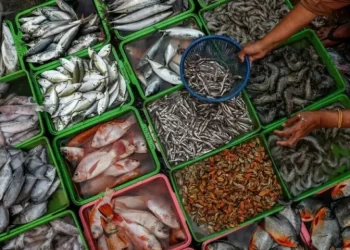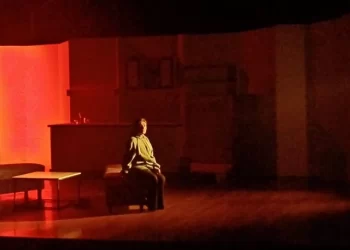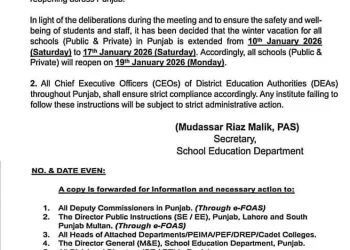About 130 refugees and migrants say they were abandoned near the border with Algeria.
The welfare of a group of sub-Saharan African refugees and migrants, many just hoping to cross Tunisia for the security of Europe, is of growing concern to rights groups as they remain unaccounted for in the Tunisian desert near the Algeria border.
A group of 29 people, part of an initial cohort of 42 Sierra Leonean asylum seekers and irregular migrants who were abandoned in the desert by Tunisia’s National Guard with nearly 100 others, were rescued by rights groups late last month.
On being left by the roadside, the group of roughly 130 people splintered, and the Sierra Leoneans made their own way through the sand and scrub in the direction of what their guards had said was Algeria.
Twenty-four-year-old Anderson was among the Sierra Leoneans abandoned in the desert for 12 days before being rescued after a chance phone call from a friend initiated rescue efforts.
Such expulsions have been occurring with such frequency that they amount to unofficial policy, rights groups said.
Migrants and asylum seekers are bussed out to Tunisia’s desert borderlands with Libya or Algeria and abandoned with no money, mobile phones, food or water – in stark violation of international humanitarian law.
In addition to registered refugees, who in theory enjoy some legal status, are tens of thousands of irregular arrivals camped at locations across the country.
The International Organization for Migration (IOM) estimated that just one camp near the port city of Sfax held 15,000 people in April.
With a population worn down by sporadic shortages in staple foods, water rationing and endemic unemployment, which sparked a 2011 revolution, the expulsion of refugees and migrants is sometimes welcomed by Tunisians.
Anti-migrant protests have been gaining ground with locals, some of whom rely on olive groves, where thousands of refugees and migrants are forced to camp after being driven out of towns, for their economic survival.
Under a climate of arbitrary prosecution and self-censorship by the media, police raids on the encampments go unreported, as do the expulsions of men, women and children into the desert.
Unofficial policy
Anderson was arrested on August 15 while journeying from Sfax to Tunis.
The journey wasn’t on a whim. He was travelling to renew the UNHCR card confirming his status as an asylum seeker: accreditation that arrivals wait months for in the hope that it will grant a degree of legal protection and access to some services.
Out in Tunisia’s hardscrabble south, the bus was emptied near Umm al-Arais in Gafsa Governorate near the Algerian border. There, the travellers separated into groups determined largely by language and nationality.
Anderson’s group of 42 Sierra Leoneans included several infants and three pregnant women, among them heavily pregnant Meminatu and her partner, Osman, who Anderson got to know.
At least five other registered refugees and asylum seekers were within Anderson’s group.
Thirteen people, 11 men and two girls, fell behind over the next four days as the group wandered the desert.
Parched and desperate, some resorted to drinking their own urine.
Anderson didn’t know what had become of any of the 13 people who fell behind.
“I still can’t sleep,” he said, “I dream of them, but there was nothing anyone could do. We had nothing. We had no power. What could we do?”
In the end, it was a chance phone call to the mobile phone that Anderson had managed to keep hidden during his arrest that helped save him and what remained of the original group.
In an indication of the precarity of the lives of refugees in Tunisia, the idea that anyone might be able to help him and the others lost in the desert had appeared so remote as not even to be worth trying.
It was more than a week before a German friend visiting Tunis contacted him and was able to arrange for food and water and mobilised the group Refugees in Libya, which was able to help rescue the group.
Mahamat Daoud Abderassoul of Refugees in Libya said efforts to locate the others who remain in the desert and have no way of communicating are ongoing.









